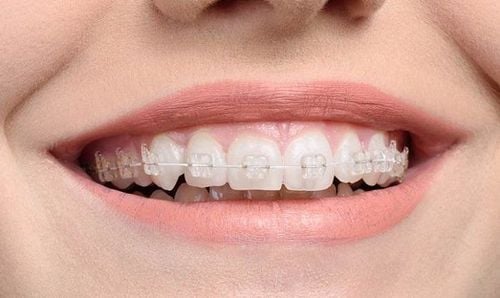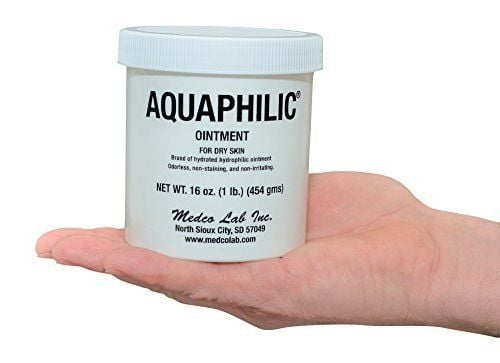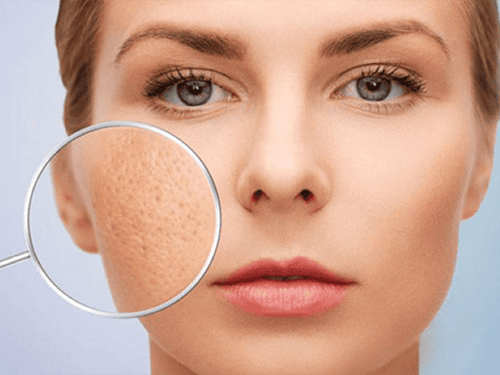This is an automatically translated article.
Most over-the-counter (OTC) body care products are quite safe, but there are some ingredients that can still harm an unborn baby. So, mothers to have a beautiful skin during pregnancy as well as to have a healthy pregnancy. Mothers should know how to care for their skin and how to choose cosmetics for pregnant women safely.
1. Skin changes during pregnancy
During pregnancy, you face changes in your body and your skin is no exception. Skin changes during pregnancy occur mainly due to hormones.
Common skin conditions you face during pregnancy are dry skin, darkening of the skin (a condition known as melasma or cholasma), and pimples.
After going through 9 months of pregnancy and having a baby, many women's skin becomes more beautiful than before. But for others, on the contrary, their skin becomes worse or worse, freckles appear. In addition to skin problems, many women after giving birth also have to deal with hair loss.
2. Skin care ingredients during pregnancy to avoid
2.1 Retinoids
Retinol also known as retin-A or retinyl palmitate, this substance is a form of vitamin A.
Vitamin A is an important nutrient needed by the body. Vitamin A, after being consumed or absorbed through the skin, is converted into retinol by the body.
Some anti-aging skin care products use retinol to treat acne, reduce wrinkles, help restore skin cells at the surface level, exfoliate faster, and promote collagen production for skin rejuvenation.
Over-the-counter products have a lower retinoid content than prescription drugs. Products such as: Retin-A (tretinoin) and Accutane (isotretinoin) contain much higher dosages. The amount of retinoid absorbed by topical products is usually low enough to be safe, but high levels can cause birth defects.
Therefore, all retinoids are not recommended during pregnancy. Prescription retinoids such as Accutane have been shown to cause a 20 to 35% risk of serious birth defects and with about 60% of children having neurocognitive problems when exposed to them while the baby is in the womb.

Trong các cách lựa chọn mỹ phẩm cho mẹ bầu, bạn nên tránh sử dụng mỹ phẩm có chứa retinoids
2.2 High-dose salicylic acid
Salicylic acid is a common ingredient used to treat acne. A 2013 study concluded that products that provide high amounts of salicylic acid, such as peels and oral medications, should be avoided during pregnancy.
2.3 Hydroquinone
Hydroquinone is a prescription product used to lighten the skin or reduce pigmentation that occurs due to melasma, a darkening of the skin that can occur during pregnancy.
There is no proven link between serious birth defects or side effects when taking hydroquinone. But because the body can absorb a significant amount of hydroquinone compared to other ingredients, limiting exposure (if any) during pregnancy is the safest course of action.
2.4 Phthalates
The most common phthalate used in skin care products is diethyl phthalate (DEP). DEP helps products like moisturizers and lotions penetrate the skin better.
However, phthalates are known to be endocrine disruptors. This means that when in our bodies, they can interfere with the normal functioning of hormones. Therefore, it is best when you are pregnant that you should not use beauty products containing Phthalates.
2.5 Chemical sunscreen
In sunscreens containing oxybenzone is known as the most frequently used UV filter in sunscreens. It has been shown to be effective in protecting the skin, but it also has harmful effects on health and the environment.
However, during pregnancy, exposure to oxybenzone is not good, because it is a hormone disruptor. So if used during pregnancy, it can disrupt hormones, leading to neurological problems, attention deficit hyperactivity disorder (ADHD), obesity in children.

Một lựa chọn mỹ phẩm cho bà bầu là tránh sử dụng kem chống nắng hóa học
3. Choosing cosmetics for pregnant women is safe
3.1 Acne and hyperpigmentation
If you are prone to breakouts or have a dull complexion, there are several options for using products containing glycolic acid.
Glycolic acid may be effective in reducing wrinkles, lightening the skin and reducing hyperpigmentation, which is considered safe to treat acne during pregnancy.
3.2 Anti-aging or wrinkles
Topical antioxidants such as vitamin C are known to strengthen the immune system and block free radicals in the body, safely boosting skin vitality by protecting the skin. from damage and maintain collagen.
In addition, other safe antioxidants for pregnant women can use include: Vitamin E, vitamin K, vitamin B3, green tea
3.3 Dry skin and stretch marks
To limit dry skin during pregnancy, in addition to drinking lots of water, using moisturizing products with coconut oil, avocado, cocoa, peptides and hyaluronic acid (HA) also works in improving the process. hydration.

Chăm sóc da khi mang thai đúng cách sẽ giúp mẹ bầu hạn chế được tình trạng da khô
3.4 Protection from the sun
Try mineral-based sunscreens that include zinc oxide and titanium dioxide. In addition, to protect your skin from UV rays, do not forget the habit of using a wide-brimmed hat when going out.
4. Note when choosing cosmetics for pregnant women
In the sea of beauty products that flood the market, there are a few brands specifically for pregnant women. Here are the brands you might consider Belli Skincare, Earth Mama Organics, Erbavia Organic Skin Care, BeautyCounter
To choose safe pregnancy cosmetics, first, let's discuss safety. safety of your skin care products with your dermatologist and gynecologist, especially if you are taking prescription medications or are concerned about pre-existing skin conditions.
Next, you can check your product's ingredient list for any unsafe ingredients. Since personal care products are not strictly regulated, you should refer to the ingredients of each product with toxic ingredients.
Please dial HOTLINE for more information or register for an appointment HERE. Download MyVinmec app to make appointments faster and to manage your bookings easily.
Reference source: healthline.com













